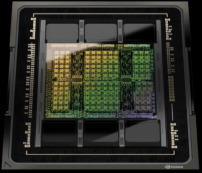Finding the right balance between technological advancements and a healthier environment will define the future of our planet. The manufacture, use, servicing, and disposal of technology have been the single most consequential factor for our planet since the start of the industrial revolution. Global CO2 emissions alarmingly reached new historical levels in 2021 after a COVID-enforced decline in emissions in 2020.
In a 1996 essay on the relationship between technology and the environment, Dominique Foray and Arnulf Grubler famously argued that tackling climate change would require a “deeper understanding of the mechanisms underlying technological change and the factors governing the diffusion of environmentally relevant technologies”. In essence, scaling back on creating new technologies is not the answer to the problem. Instead, the design of environmentally-friendly tech and more innovative use of existing systems might be our only way out of the climate crisis.
The cloud industry in focus
The cloud industry will do well today to heed these recommendations. The cloud has been described as the “nexus of technology”. The industry’s importance to modern commerce casts a critical light on its role in our current environmental predicament. For example, recent studies associate the rise in global electricity consumption with the proliferation of data hubs and a raft of associated socioeconomic factors. However, compounding this problem is the considerable amount of e-waste in data centers, offices, and homes. The underutilisation of computing hardware, from idle servers in data centers to underutilised video game GPUs, has thrust us into a vicious cycle of excessive manufacturing and limited usage.
The Natural Resources Defense Council (NRDC) published a paper in 2014 estimating data centre server utilisation to be between 12% and 18% on average. Despite improvements, server utilisation remains low across data centers. During non-peak hours, servers are inactive or underutilised, resulting in significant e-waste. A practical alternative approach to hardware management is providing avenues for spare computational capacity on a global scale.
Spare capacity recycling is a revolutionary model
In a previous post, we addressed how proper server recycling would enhance overall lifecycle management. This underlines one of our core value propositions as a network. Cudos is a decentralised cloud and computation blockchain aiming to meet the cloud computing demands of the future by enabling the buying and selling of computing capacity over a blockchain. Ultimately, our model would unite the robust security architecture of blockchains with a distributed cloud marketplace sufficiently potent to power a slew of emerging technologies.
This will be achieved by providing near-limitless computing power via a global network of service providers. We recently released the Alpha version for our decentralised cloud platform. With CUDO Compute, we are challenging the monopoly of centralised cloud providers like Amazon, Microsoft, and Google with an ecologically viable alternative. Globally, data centers are squandering tremendous amounts of computing and hardware capacity as they utilise roughly only a quarter of their total computational capability.
Furthermore, CUDO Compute will comprise hardware beyond server farms as personal devices such as GPUs will also potentially offer computing capacity when we go live. We previously addressed the unique opportunities available to gamers on our platform. For example, statistics show that gaming hardware is massively underutilised globally, with players averaging less than thirteen hours of hardware utilisation time weekly. The range of CUDO Compute hardware will effectively democratise the cloud industry, make it accessible to numerous participants, improve network latency, and address environmental needs.
Participate in our survey!
You can support the evolution toward more efficient use of hardware capacity by participating in our survey today. Your feedback will help us improve our product and speed up our sustainability drive. Please complete the survey here!
About CUDO Compute
CUDO Compute is a fairer cloud computing platform for everyone. It provides access to distributed resources by leveraging underutilised computing globally on idle data centre hardware. It allows users to deploy virtual machines on the world’s first democratised cloud platform, finding the optimal resources in the ideal location at the best price.
CUDO Compute aims to democratise the public cloud by delivering a more sustainable economic, environmental, and societal model for computing by empowering businesses and individuals to monetise unused resources.
Our platform allows organisations and developers to deploy, run and scale based on demands without the constraints of centralised cloud environments. As a result, we realise significant availability, proximity and cost benefits for customers by simplifying their access to a broader pool of high-powered computing and distributed resources at the edge.
Continue reading
Key considerations for optimizing power efficiency with sustainable energy sources
21 min read
Building for 70% AI-driven demand: Planning for the coming capacity surge
18 min read
NVIDIA H100 versus H200: how do they compare?
12 min read
NVIDIA’s Blackwell architecture: breaking down the B100, B200, and GB200
12 min read

High-performance cloud GPUs
